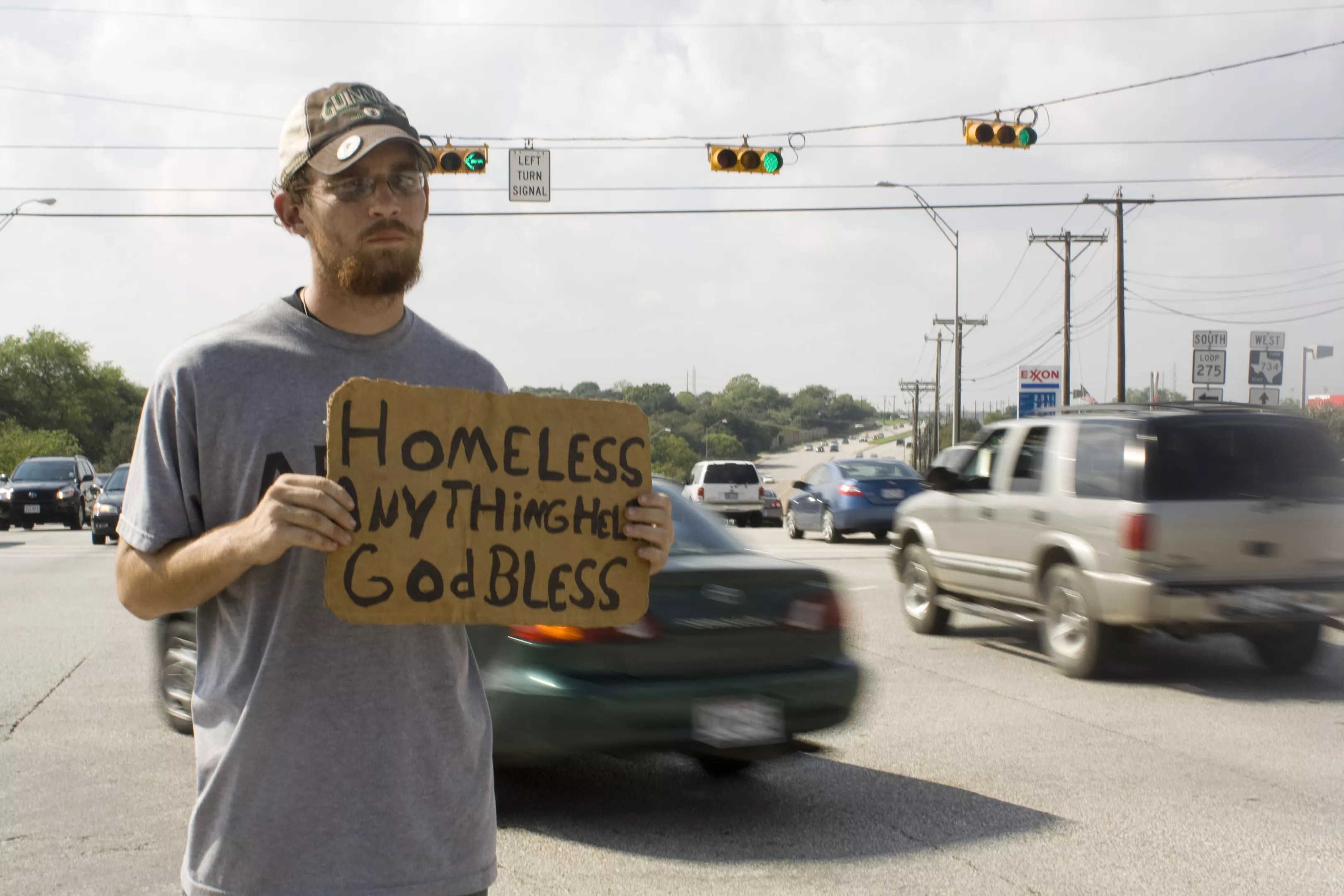
Hannly Sam via Flickr

Audio By Carbonatix
Dallas City Council has been trying to reduce panhandling for a while now.
Back in 2018, Dallas police stopped enforcing a city ordinance outlawing panhandling in certain areas after dark, in response to U.S. Supreme Court ruling in an Arizona case that measures like it were unconstitutional.
“End Panhandling Now,” the city’s next attempt at a solution, didn’t fare much better. After spending more than $450,000 on a public relations campaign intended to discourage people from giving to panhandlers and advertising nonprofit services for those on the street, council members declared the effort a dud and a waste of taxpayer money
Now, the council has developed another model for reducing panhandling and connecting people on the streets to social services and mental healthcare.
This year, make your gift count –
Invest in local news that matters.
Our work is funded by readers like you who make voluntary gifts because they value our work and want to see it continue. Make a contribution today to help us reach our $30,000 goal!
Council members rolled out the details of the panhandling deflection program at a committee meeting on Sunday (the basics of the program were first introduced late last month).
“The headline we had given at that meeting was ‘compassion plus enforcement’,” said City Council member Gay Donnell Willis.
“The services are people resistant; the people aren’t service resistant.” – Dr. Hannah Lebovits, UT-Arlington
The program aims for compassion by connecting people asking for money on the street to the appropriate social services, from mental health crisis treatment to temporary affordable housing options.
For enforcement, the program “will have a city marshal go out with a crisis intervention case worker to just sort of do a check on that person,” Willis said. “You know, what’s their the mental and physical health status? Do they have any warrants out?”
People’s paths through the program would be decided according to whether they are homeless when officials make contact. Homeless people would be directed to Dallas’ new rehousing initiative. Others would be assessed by either the marshals or a mobile crisis outreach team and have an option to either accept or decline access to services. Anyone with outstanding warrants or unpaid fines who declines services can end up in community courts or in custody.
“There is a way to say you can choose service and help, but if you have multiple tickets and fines and that sort of thing, that you can’t just refuse services,” Willis said. “I mean, you’ve got to move in one one way or the other.”
Advocates for the homeless say the program threatens to push already vulnerable people into contact with the criminal justice system.
“Why are they trying to differentiate between the two groups? Well, they’re trying to present this picture that a lot of panhandlers aren’t actually homeless, that a lot of people who are panhandling are, like, fooling you and you should be mad at them, you should be angry at them and they should get real jobs,” said Dr. Hannah Lebovits, professor of public affairs and planning at the University of Texas at Arlington.
Lebovits said that while the city tries to cast its homeless population as largely “service resistant,” the low quality of its services makes people not want to engage. Citing severe overcrowding and unsanitary conditions at local homeless shelters as an example, Lebovits said that “the services are people resistant; the people aren’t service resistant.”
A pilot version of the program will run through June. The council will decide whether to proceed with it based on data from the pilot.